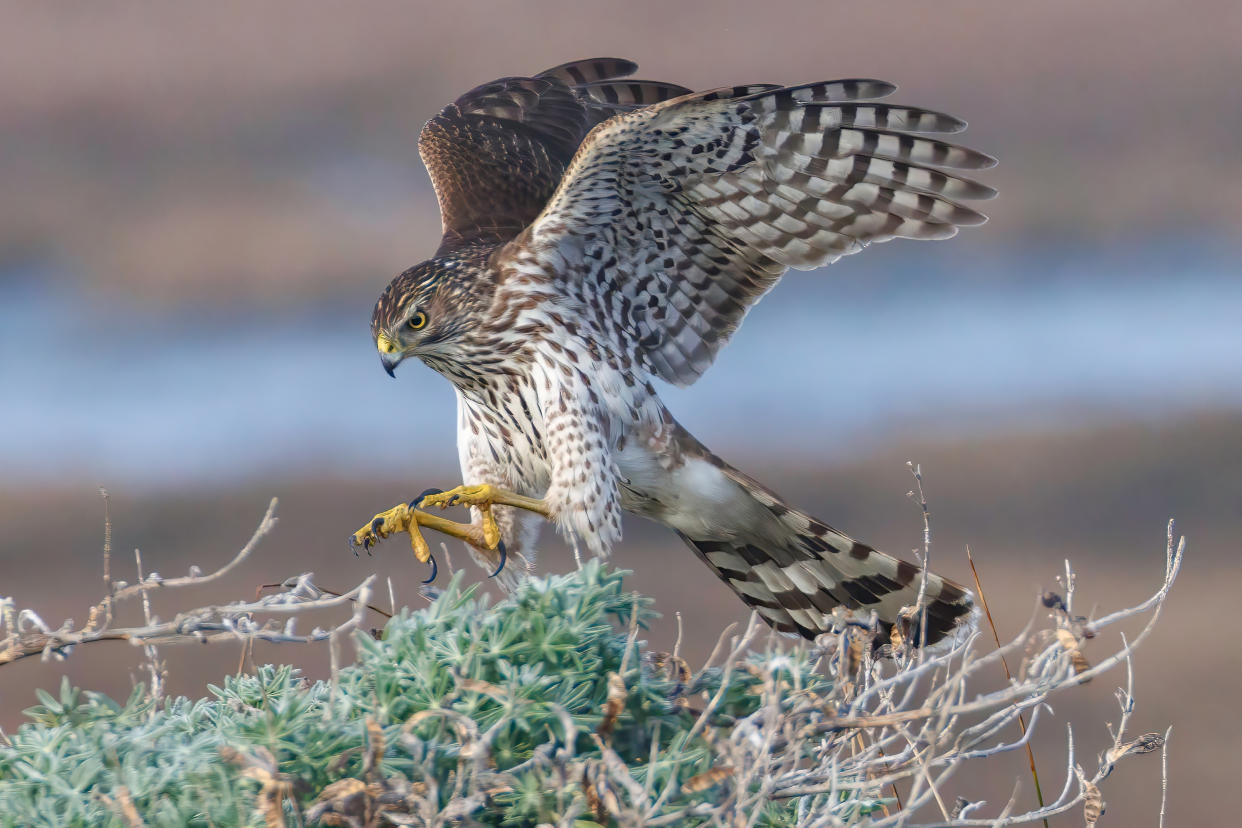Does birding need a racial reckoning?

What’s happening
Last week, the American Ornithological Society said it would change the name of any bird whose name referenced a historical figure: Cooper’s Hawk, for example, or Townsend’s warbler. Birds will no longer be named after people but, instead, after each one’s physical traits or native habitats.
The change is intended to reflect the fact that some of those birds are named for people who owned slaves, supported the Confederacy or partook in anti-Indigenous campaigns. Bird names “deemed offensive and exclusionary” will also be changed.
Audubon's shearwater, named after John James Audubon, the famed 19th century naturalist who owned slaves, will soon have a new name. So will Scott’s oriole, named after Winfield Scott, responsible for the violent displacement and dispossession of Native American people in the 19th century.
“Exclusionary naming conventions developed in the 1800s, clouded by racism and misogyny, don’t work for us today, and the time has come for us to transform this process and redirect the focus to the birds, where it belongs,” said American Ornithological Society executive director Judith Scarl.
Why there’s debate
The announcement about bird names comes at a time of a broader racial reckoning across industries and at many prominent institutions, with fierce debates taking place about which historical figures should be cast aside views on slavery and other topics that are widely considered offensive today. Statues have been taken down and buildings renamed, meeting resistance along the way.
Critics of the bird-renaming project won a victory in March, when the National Audubon Society voted to keep its name despite Audubon’s defense of slavery. “The name has come to represent so much more than the work of one person,” the Audubon Society’s board of directors chair Susan Bell said at the time. Some local Audubon chapters have made their own name changes.
The birding community has been engaged in a debate over race and racism for the last three years. Just hours before George Floyd was murdered by police officers in Minneapolis, Amy Cooper, a white woman, confronted Black birder Christian Cooper in Manhattan’s Central Park after he asked her to put her dog on a leash.
Amy Cooper threatened to call the police. “I'm gonna tell them there's an African American man threatening my life,” she said, before proceeding to do just that as he recorded her.
The Cooper incident shone a light on how birding — and other outdoor activities, including running and backpacking — have long been infused with practices, assumptions or symbols that turned off nonwhite people.
“I am a Black birdwatcher, and I am also a researcher whose work focuses on how race shapes conservation, environmentalism and outdoor recreation,” Canadian doctoral student Jacqueline L. Scott wrote several days after the Central Park incident. “These fields are overwhelmingly white and noted for their lack of diversity.”
What’s next
The American Ornithological Society will come up with new names for birds honoring the likes of Audubon and Winfield Scott.
Perspectives
Changing names will create confusion
“Personally, I am absolutely against changing the common names of birds. Birders don’t understand how amazing it is that they have official common names for every species. It allows new birders (or even longtime birders who don’t want to learn about scientific names) to be able to talk about any bird species and have any other birder know what they are talking species they are talking about (assuming the other birder had heard of the species before). If we change all of these bird names, then this can’t happen.” — “Raymie,” a user on naturalist board iNatForum
Removing the stain of racism is always the right thing to do
“Racism is so pervasive in every aspect of American society that we can feel its effects even when taking a stroll and observing a Townsend warbler, a tiny bird named for John Kirk Townsend, known for his collection of skulls stolen from indigenous gravesites in the 1800s. He and many others like him believed in the racial inferiority of native peoples. Removing Townsend’s name is a beginning step in making the world of birding more welcoming to birders of color.” — Christina Greer, the Grio
Leave the birds, and John James Audubon, alone
“This is just the latest chapter in our new culture of cancellation.”
— Betsy Dorminey, American Spectator
"A birdwatching group concerned with banning pesticides and preventing drilling on federal lands has, in Cockburn’s estimation, a zero percent chance of being filled with crypto-racists."
— Cockburn, Spectator
Animal names are changed all the time
“Animals are dubbed and re-dubbed with regularity. Last year, the Entomological Society of America decided that the northern giant hornet would be the new name for V. mandarinia, the so-called murder hornets that had established themselves in the Pacific Northwest. (The wasp was previously known as the Asian giant hornet.) The society also gave L. dispar the common name “spongy moth,” to replace its former name, which included a slur used for Romani people.” — Isaac Schultz, Gizmodo
